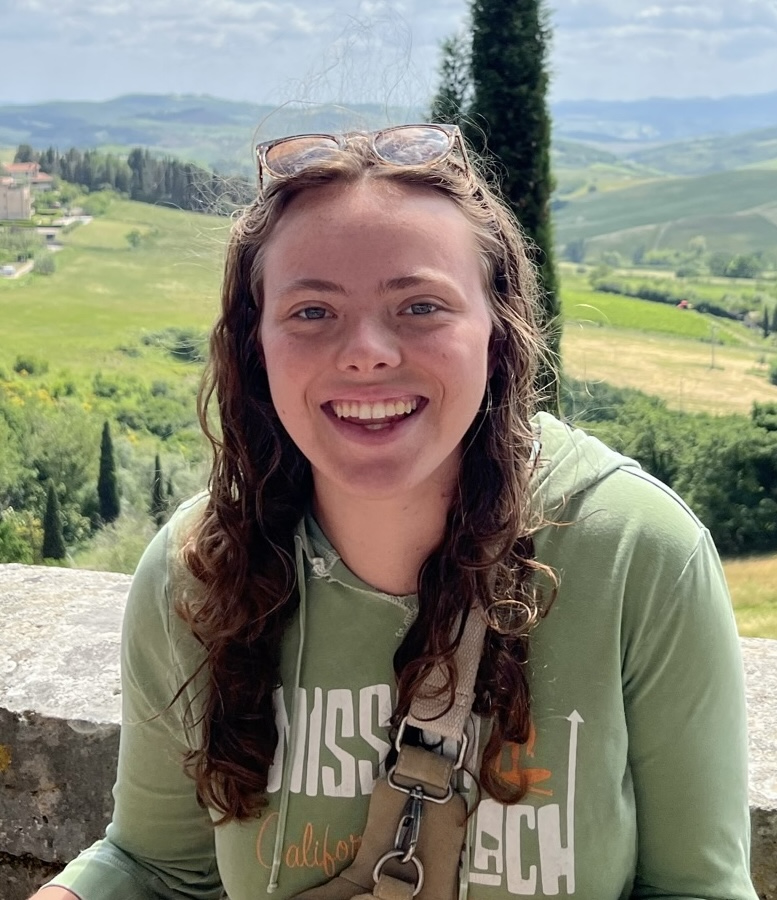
There are two facts about me that explain a lot:
1. My overarching goal in life is to learn a little about everything, so that I can hold a conversation with anyone about what they are most passionate about. There are not many moments better than to watch someone light up over their passions and be able to have a back and forth about it.
2. If you were to have a conversation with me about what I am passionate about, disability is one of the things that will come up.1
I was born with a physical disability and will be a lifetime crutches and wheelchair user. Whether I realized it at the time or not, a lot of what I studied and have chosen to do with work comes back to figuring out the dichotomy that comes with living with a disability and my role in improving conditions in the world for people with disabilities at large.
I graduated from Pomona College in Claremont, CA with a degree in Philosophy, Politics and Economics (PPE). I also was working toward minors in Chemistry, Film and Classics,2 but I graduated early. At graduation, I was awarded with a Senior Service award largely for my work as the President of the Pomona Student Union – a group in charge of planning a variety of speaker events, panels, debates, and discussions to support dialogue on campus.3
When I first was figuring out what I wanted to do as a career, I thought it would be in neuroscience, so I worked at a gene therapy lab. However, I quickly realized that while the puzzle of gene therapy is fascinating, slicing mouse organs4 in a dark room by yourself is not for me.5 I tried a few other things and then landed on community organizing specifically around disability issues.
However, as I got more into talking about the issues and local initiatives, I realized that we are not yet ready for another large-scale disability movement because people don’t understand the disabled experience. We need more stories. Stories are the building blocks of culture, and the most consumed stories are in media.
Now, I’ve pivoted to the entertainment industry.6 As a first step, I completed an Entertainment and News Media fellowship with RespectAbility where I reviewed scripts and marketing campaigns for disability inclusions, created business development initiatives and planned events around disability. I continue to consult on disability representation for a couple projects and support a few documentaries while I look for more permanent work.
Long term, I want to work in development and find stories that will help soften the ground for larger changes both in disability and beyond, and then help bring them to the big screen. That is where Wait…What? Whoa! comes in. Eventually, the projects I develop will be Wait…What? Whoa! concepts and this will turn into a company. While I continue to build the skills and connections to make that dream a reality, this is a place for me to put some of the Wait…What? Whoa! concepts I find while continuing to learn a little about everything.
If you want a better sense of my resumé, LinkedIn
1.That and the fact that spoons are underrated
2. Yes, I studied a dead language. Actually, twice a week, I would go to an 8 am class to translate Medieval Latin that had never been translated before. Most people focus on the Roman period that thousands of pages of Medieval Latin have been left untranslated. My favorite was a monk’s poetry discussing the love triangle he was in with a man and a woman and the additional complication of trying to stay celibate for God.
3. Some of my favorite events: The Future of the Republican Party, Redefining Masculinity and College Hookup Culture, and Why People Enjoy Being Scared for Halloween
4. Specifically male mice organs. Unless, needed for breeding, it is common practice for scientists to kill the female mice in the litter before testing because for a long time it was believed that their menstruation cycles could mess up the study. Yes, the lack of women in medical science starts in the mice studied, but it is beginning to be questioned.
5. Also, I learned early career scientists in academic medicine regularly struggle to make ends meet financially even though they have 10+ years of education, which is raising concerns of a labor shortage in the near future.
6. which I’ve only now learned many of the people in my life thought it was inevitable.